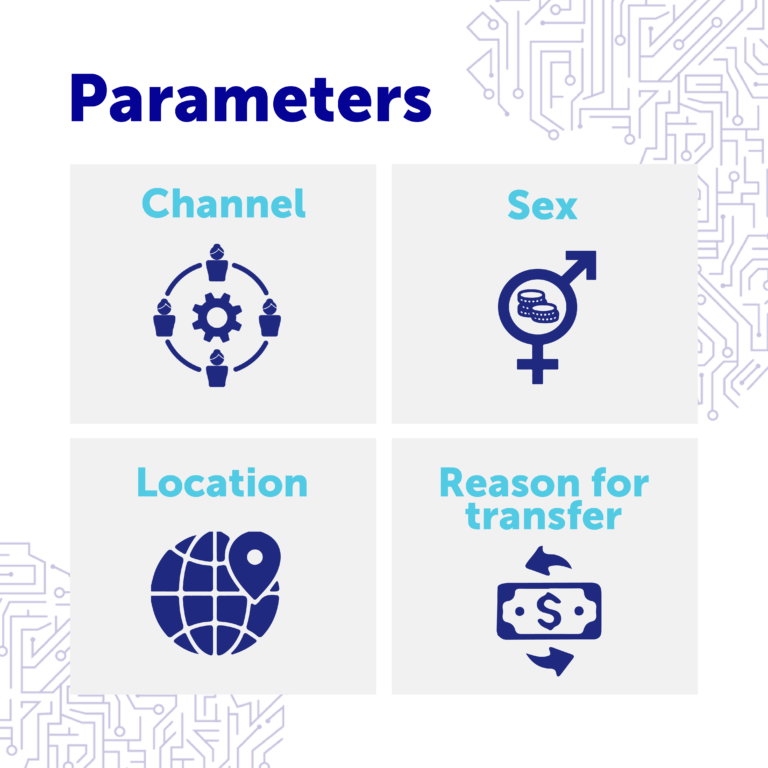The importance of remittances for Africa
Remittances, the cross-border payments that migrants living and working outside their country of origin send back home to loved ones, are currently subject to a patchwork of policies and regulations that tend to differ significantly from one region to another or even between neighbouring countries. The multiple guidelines governing acceptable forms of personal identification, maximum transaction sizes, licensing requirements for money-transfer operators, etc., combine to create a formal remittance market of such formidable complexity that it often drives customers to use simpler but riskier informal alternatives.
According to the latest World Bank Migration and Development report, Sub-Saharan Africa received an estimated US$49 billion in remittances in 2021.Owing to its massive diaspora population, Nigeria regularly receives the greatest remittance inflows (followed by Ghana, Kenya, and Senegal); conversely, South Africa is the largest sender of remittances to other African countries.
Challenges
African countries recognize the importance of standardizing concepts and definitions and following internationally accepted standards, guidelines, and best practices in capturing and providing remittance statistics. However, there are different levels of implementation, and remittance statistics are compiled following different standards.

Imagine that we want to take a measured, hard look at the size of the remittance market in a given country or sub-region based on several factors. Suppose, for example, that we, therefore, want to share statistics about where the money comes from by provider, the average sums sent by women and men migrants respectively, how the remittances are sent, at what costs and speed, and the physical (or virtual) destinations, or points of receipt.
What can we offer? What do we find? Sadly, and most strikingly, we find gaps in statistics for several countries, methodological challenges, lack of harmonization of definitions and concepts, or lack of sex-disaggregated data. In many African countries, measuring remittances—and indeed differentiating them from other payments—is an all too familiar problem for central banks and national statistics offices (NSOs).
These gaps are a concern in terms of policymaking, transparency, financial stability, financial inclusion, financial integrity, and consumer financial protection. In principle, African policymakers understand the important role migration plays in the development of countries of origin and destination alike. However, in practice, and without reliable remittance statistics, they are insufficiently equipped to make sound policy decisions that will support deepening the financial sector to enable low-income populations to adopt formal financial services. Access to accurate, timely, granular, disaggregated African remittance statistics is essential for formulating a policy framework, decision-making, and measuring public policy results, developing the private sector, and empowering migrants and their families. More broadly, expanding the capacities and mechanisms for effectively using data is also a fundamental aspect of development in Africa.
What can UNCDF bring to the table?
In view of these challenges, governments must require their regulatory and policymaking leadership to improve their remittance data and revise reporting protocols. Central banks and NSOs are crucial in transforming and modernizing systems to provide the data and statistics needed to support social and economic development in African countries. With assistance from partners, such as UNCDF and donors, regional economic communities will support central banks, NSOs, and regulators to develop remittance data collection and analysis capacities.
UNCDF is engaged in an ongoing regional effort to enhance the accessibility, comparability, granularity, and accuracy of remittance data. In October 2022, for example, the Intergovernmental Authority on Development (IGAD) approved a roadmap for the regional harmonization of remittance policies to tackle inconsistencies and incompatibilities among policies, current payment processes, procedures, and security features that cause delays and relatively high costs for the beneficiaries. IGAD and UNCDF will provide technical assistance to its Member States by developing the capacity of central banks to measure and analyse remittance statistics.
- Assess: Evaluate the existing national framework for remittance data collection to determine gaps, data needs, and opportunities for intervention.
- Connect: Learn from and apply experience from central banks gained elsewhere. What are the most appropriate international transaction reporting systems? What are the learnings from implementing remittance data collection systems?
- Automate processes for the extraction and compilation of granular remittance data using advanced technology. System-generated remittance statistics will be broader, deeper, more reliable and revealing, faster, and cheaper than conventional alternatives. Technology solutions can help reduce operational costs for extracting and compiling African remittance statistics and support regulatory change.
- Leverage the power of remittance statistics: Assemble, analyze and share statistics to improve policymaking or business outcomes. Governments, central banks, and remittance providers must work together and close the gap in the collection and use of sex-disaggregated remittance statistics because remittance-sending and receiving behaviour is highly gendered.
- Transform to drive change. Define the implementation process for a transaction reporting and analysis system focusing on outcomes for end-users. What will realistically match the needs and capacities of regulatory authorities, reporting entities, and remittance markets to serve migrants and their loved ones better?
This can only be done in collaboration with technology companies with a track record of innovation in this field who have been actively offering solutions to regulators to capture, manage and analyse data.
In Africa, many countries already collect data on volumes of remittances (and flows over time), but these do not necessarily adhere to a standardized format. A first step would be for every country to be able to offer those figures. Beyond that, a genuine paradigm shift is needed, especially in the least developed countries, to allow the collection and sharing of disaggregated remittance data on a variety of parameters, such as transfer channel, sex, age, or location (of both sender and recipient), or even reason for transfer. Such data could offer a revelatory picture, on a macro scale, of the lives and struggles of migrant workers and their families, in a manner essential for developing inclusive public policies, product development, and more inward investment into these poorer countries.
“African policies and processes need to undergo a radical overhaul for a data revolution to sustainably leverage digital technology to collect, monitor, and analyse granular data on remittance markets: reducing costs and improving overall efficiency”
Tweet
Sound policies must be based on statistics and data. Decision-makers in the public and private sectors depend on data and statistical analysis to shape and buttress their decisions. For harmonious social development and economic prosperity, African governments need reliable statistics, of which remittance statistics are a vital component. Today, 18 November, African Statistics Day, UNCDF reaffirms its commitment to contribute to the production, dissemination, and use of remittance statistics for evidence-based decision-making and recognizes its role in the design of public policies and supportive digital product development.
